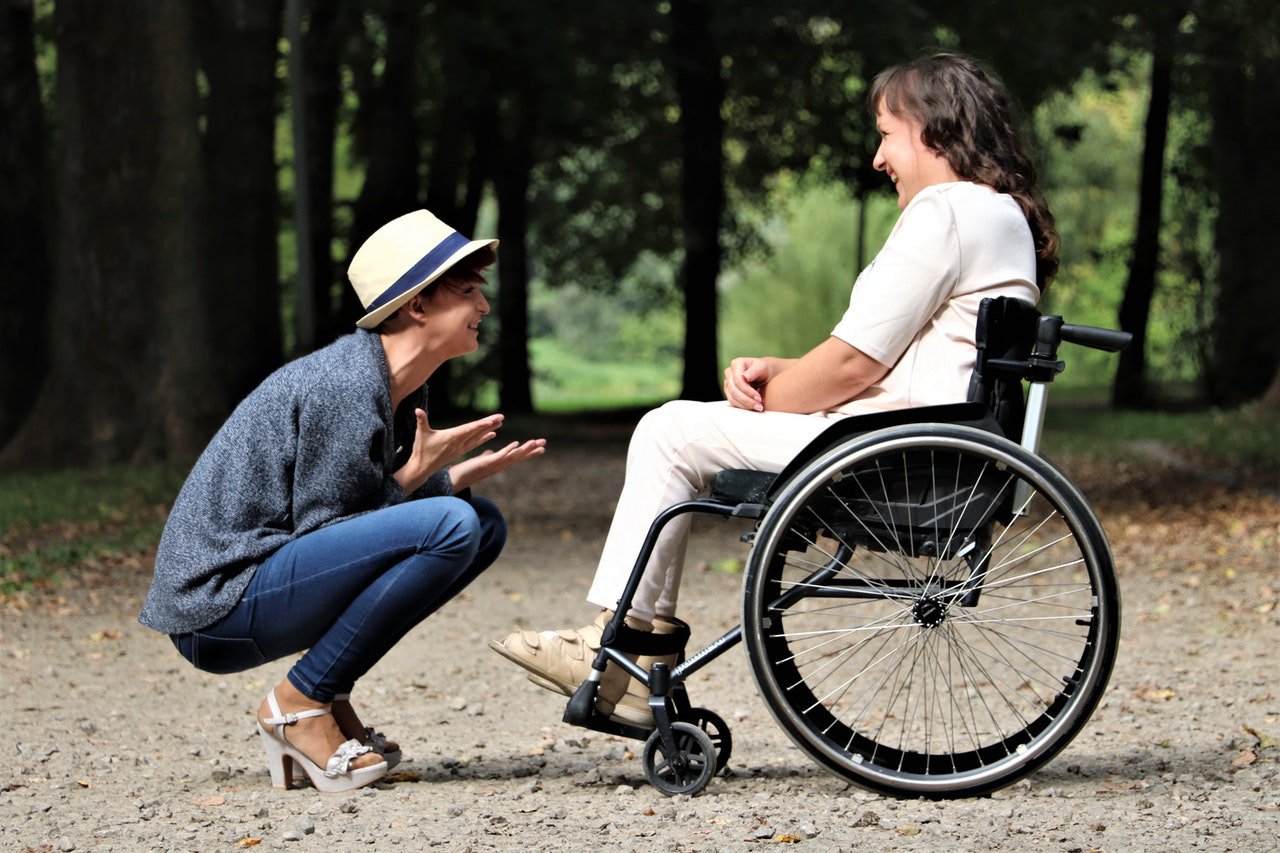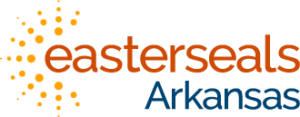
Easterseals Arkansas is committed to providing comprehensive services for individuals with disabilities. We aim to empower these individuals and enrich their lives, offering support to meet their needs at all levels. One of our top priorities in this effort is to emphasize and address the unique challenges that occur where disabilities and mental health overlap.
Understanding Mental Health and Disabilities
The World Health Organization defines mental health as “a state of mental well-being that enables people to cope with the stresses of life, realize their abilities, learn well and work well, and contribute to their community.” It further describes mental health as a fundamental contributor to overall wellness, which is essential to both individual and community development.
This definition aptly echoes Easterseals Arkansas’ vision. Disabilities can present unique challenges across various aspects of life, including mental health. Using our decades of expertise, we strive to help individuals with disabilities face those challenges by tapping into their unique strengths. We aim to help them develop these capabilities for well-being, tailoring our approach to their individual needs.
Some of the common mental health challenges a person with disabilities may experience include increased anxiety, depression, and general stress. While these conditions are not exclusive to the community of disabled individuals, the very nature of many different disabilities can both cause and / or worsen existing negative mental health impacts like these. In addition, certain factors such as limited access to resources, added social stigma, and even outright discrimination can all contribute to mental health issues for the disabled population.
For these reasons, Easterseals Arkansas aims to raise awareness about the importance of mental health and offer guidance on the best strategies and resources for prioritizing it. Whether you or someone you love is struggling to maintain good mental health with disabilities, the following resources can grant you access to the help you need.
Prioritizing Mental Health: Strategies and Resources
How Easterseals Arkansas Can Help
Easterseals Arkansas offers a variety of comprehensive services designed to meet the needs of individuals with disabilities at any level. In terms of mental health support, some of our most valued resources include counseling services, support groups, and wellness workshops.
Of note is our Center for Training and Wellness. It is tailored to support adults ages 18 and up. It focuses on empowering those adults as they build new skills, develop robust peer relationships, prepare for and acquire jobs, and learn – overall – to thrive. We take a holistic, body-and-mind approach with all of our offered therapies. We also prioritize balance and independence as the final goal for a more fulfilling, wellness-enriched life.
Through the Center, we even work to break down the barriers to creativity which can sometimes limit individuals with disabilities. Our Artistic Realization Technologies (A.R.T.) program offers an added therapeutic option to help individuals navigate life and mental health via artistic expression.
Other Resources
While Easterseals Arkansas is proud to be a primary source of support for individuals and families of those with disabilities, we also recognize the importance of sharing additional resources that may fall outside our own offerings. We specialize in services for individuals with disabilities in Arkansas, but we always encourage you to explore the support that is offered on a national level.
Below are just a few examples of national resources we recommend:
National Alliance on Mental Illness (NAMI): NAMI is America’s largest “grassroots” mental health organization. Their priorities are to educate, support, and advocate for people with mental illnesses. They also offer a toll-free Helpline for urgent information and help requests In addition, they raise public awareness through events and activities built on fighting the stigma around mental illness.
Disability Rights Education & Defense Fund (DREDF): DREDF is a national civil rights law and policy center. They aim to advance the rights of those with disabilities through legal advocacy, training and education, and public policy/legislative development.
Mental Health America (MHA): MHA is a non-profit organization dedicated to promoting mental health, well-being, and illness prevention. Their efforts include research, public education and policy, advocacy, and direct services.
Self-Care Tips
In addition to these helpful resources, there are also several proven ways individuals with disabilities can support their own mental well-being. Each of the below activities can be done independently or with assistance. They each have demonstrated positive impacts on mental health.
- Physical activity and exercise: One way to boost mental health is to get moving. Physical activity increases endorphins (“feel good” chemicals in the brain). These naturally lift mood and can even aid directly with anxiety and depression.
- Mindfulness and meditation techniques: Another option – especially for those with physical disabilities for whom movement may be difficult – is meditation. The Mayo Clinic describes meditation as a “simple, fast way to reduce stress”. Meditation comes in many forms, but at its simplest, it involves the practice of simply quieting your thoughts. Even just a few minutes of meditation each day can help you refocus and bring calm to your body and mind.
- Healthy eating and nutrition: What you eat can also affect your mental well-being. Harvard Health Blog states that most of your seratonin – “a neurotransmitter that helps regulate sleep and appetite, mediate moods, and inhibit pain” – comes from the gut, working together with the bacteria there to help your body absorb nutrients from what you eat. Thus, eating more nutritious foods and supporting the healthy bacteria in your gut can result in direct improvements to your mental health.
- Building a strong support network: Having a strong system of support is essential for maintaining mental wellness. A 2015 survey showed that people reported lower stress levels when they had emotional support. In addition, a 2022 study showed this support increases resilience during times of stress. This can be profoundly important for individuals with disabilities, who often experience increased loneliness and other unique social challenges.
Breaking Down Stigma and Promoting Mental Health Awareness
Mental health can be difficult to navigate on its own. However, the challenge can be magnified for those with disabilities. Unfortunately, disability has come with “stigma” (negative beliefs/ideas) since early recorded history. This negative belief generally arises from differences incorrectly perceived as weaknesses or indicators of inferiority. They can drive people to avoid, stereotype, discriminate against, or even become violent toward those whom they perceive through this stigma.
One of the most important tools for stopping stigmatizing views and behaviors is open conversation. Specifically, it is about mental health anddisabilities. Much stigma arises out of misunderstanding and incorrect perceptions. Challenging the misguided stereotypes surrounding disability and mental illness and advocating for those who struggle with these challenges is imperative for breaking down the societal barriers that have traditionally impacted the community of individuals with disabilities.
Making Real Impacts
Mental health is an integral part of overall well-being. It is with this in mind that Easterseals Arkansas prioritizes support for individuals with disabilities holistically. We are dedicated to empowering those with disabilities by supporting them in all aspects of life – mental health included.
Join Us In Breaking Down Barriers
Help Easterseals Arkansas promote mental health for individuals with disabilities. Share this blog with your friends and family to spread awareness and support. Visit our website to learn more about our mental health services and how we can help you or a loved one.
